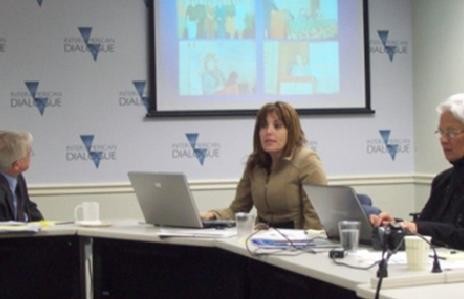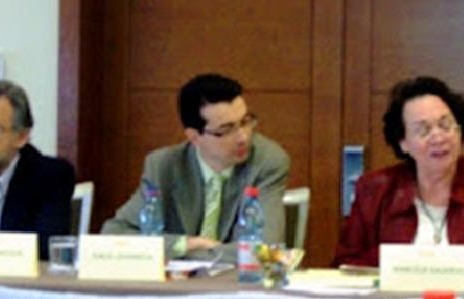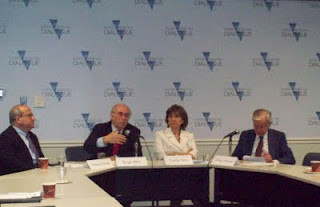
Developing Networks for Reform
PREAL reviews broad spectrum of its activities and discusses priorities for improving education policy in the coming year.
This post is also available in: Spanish
On Monday, May 9, PREAL, in collaboration with Florida International University’s Cuban Research Institute, hosted an event in Washington entitled “Will Economic Change Threaten Cuba’s Education Success?” Amber K. Gove, senior education researcher at RTI International and co-author of the book Cuba’s Academic Advantage, discussed the unique traits of the Cuban education system that have resulted in high literacy rates and test scores in the country.
Gove said that the Cuban education system, as compared to other Latin American systems, is highly centralized, the curriculum is uniform and teachers efficiently use class time. She cited the results of a 1997 UNESCO study in which the bottom quartile for Cuban students was the mean score for students elsewhere in Latin America. She qualified, however, that a more recent test has shown a high variance in these scores and it is uncertain what the future will hold for Cuba’s education system.
Sergio Bitar, former Minister of Education in Chile and visiting senior fellow at the Inter-American Dialogue, commented on Gove’s presentation. He focused on the education practices that have distinguished Cuba from the rest of Latin America, including a near 100 percent primary school enrollment, an emphasis on pre-school education, and early efforts to increase adult literacy.
As Cuba implements new economic reforms, the challenge will be to retain its highly-trained teachers while ensuring the best and brightest continue to choose the profession.
PREAL reviews broad spectrum of its activities and discusses priorities for improving education policy in the coming year.
Unique lens into what those who know education policy best are saying about current trends in Latin America.
Event participants discuss Education Ministry and highlight difficulty of balancing political pressures with long-term goals.

